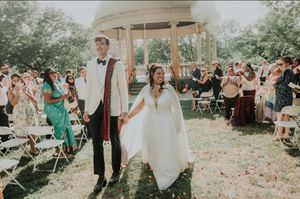
“I was looking at schools in an eight-hour radius from home in Wilmington, Delaware,” Monisha explains. “My parents wanted me to be a drivable distance. I looked at North Carolina schools and others,” Monisha says. “I knew I wanted to work in politics, and I got a letter from then-mayor of Charlotte, NC, Pat McCrory, who later became governor of NC, talking about being an alum of Catawba College. I was like, ‘Oh, this is so cool.’ I know now how those letters work, but at the time, it felt very personal,” she chuckles. She added Catawba to her list of schools to visit.
“I remember feeling so welcome the minute I set foot on campus. People knew my name and interests, and the tour felt personal,” Monisha recalls, “And there were bubbles in the fountain [in Stanback Plaza]. I wanted a school to be fun. I didn’t want it to feel like a commuter college; I wanted a real community there. When I saw those bubbles in the fountain, I thought, ‘There are students here who are clearly having fun.’ I knew the administration was probably so mad at them, but that was the kind of place I wanted, a place where I felt welcome and could have fun and get a good education,” she says. “Catawba went from not on my list to the top of my list. Being from out of state, touring campus on a Saturday morning, there were no students around. They were probably sleeping. But seeing those bubbles showed me the college life I wanted.”
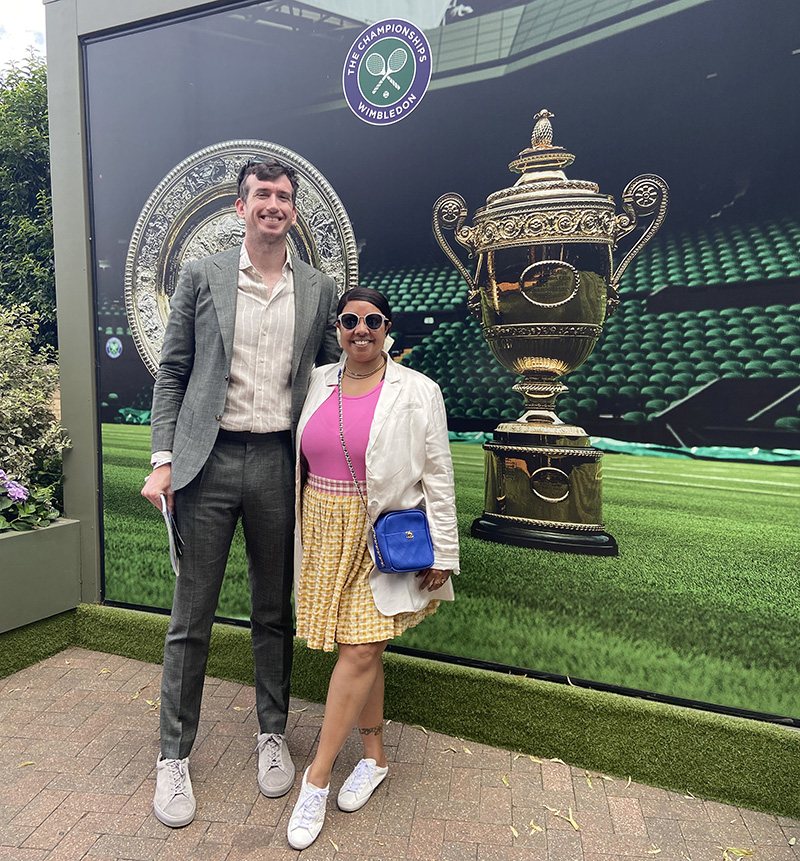
At Catawba, Monisha declared her major, political science, as soon as possible. “Dr. Silverburg was my advisor. I was probably as much a pain in his side as a star in his eye,” she smiles, “I was very independent and ambitious. I had a very clear path of what I wanted and how I wanted to do it. He was definitely a master of his trade, and he said, ‘All of that is great, but you are also going to learn.’” She adds, “That is exactly what you want from a professor, someone who will push and challenge you and make you better. That’s what he did for me for four years.”
Monisha was very active in student government as a student. “It was a huge part of my experience.” She was a freshman senator, sophomore class president, a senator again, and then SGA president. “I got to know a lot of other classmates through that. Those were my people.” She liked representing the interests of the students. “We thought about ‘How do we make sure the students are sitting at the right tables, and that their voices are heard?’”
Monisha was also a serious fan of Catawba football, which was having banner years. She attended home games and traveled to away games. “I probably went on the road more than I should have,” she says with a smile in her voice. "I didn’t miss a game.” She loved the energy and school spirit at Catawba. “People don’t realize that although the parking lot and the stadium are smaller than at a big school, the energy is exactly the same.”
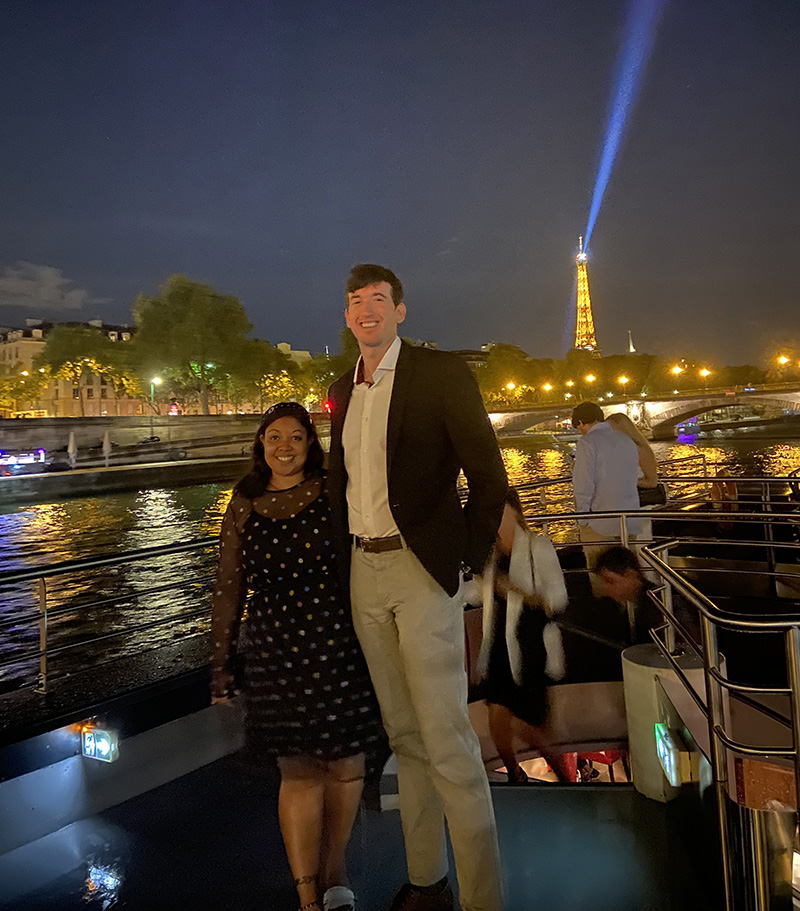
She enjoyed her student experience at Catawba immensely. “I was on campus all four years. I led student tours. I took my studies seriously. I also did things like going to campus parties on the weekend and playing club lacrosse. There wasn’t a women’s lacrosse team then, and that was a huge part of what I did in high school. I was also Miss Catawba!” Another favorite memory was entering the lip sync contest. She recalls that Dr. Vandergriff-Avery was one of the judges. “She was very serious about the accuracy of your song; you had to match the words exactly. Winning that contest was always like a big deal!” Monisha laughs, “That is one of my core memories.”
After graduating in 2004, Monisha worked for US Senator Carper at his district office in Delaware, then lived a year abroad in the UK, working on a social justice project. Returning to the US, she worked for Senator Carper again, this time in Washington, DC. She worked on “The Hill” for five and a half years in the Senate, working her way up through the committees and working on issues including homeland security, postal reform, small business, and affordable healthcare. About that last issue, she remarks, “I realized we were really bad on messaging policy to people. People didn’t really understand what we were doing and how it impacted their lives.” A desire to improve communication motivated her to obtain her master’s degree in journalism at Georgetown University. Evan Henley was also a Georgetown grad; when Monisha met him, it was one of the things that connected them. They later married.
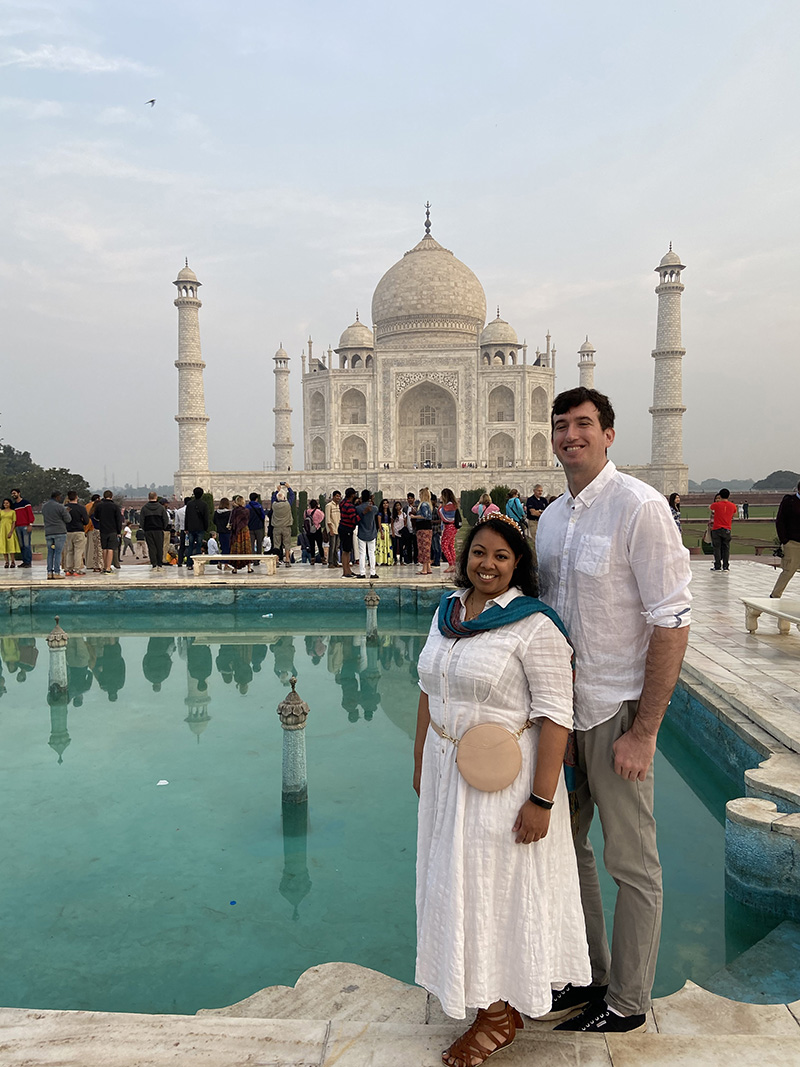
Upon finishing her master’s, Monisha chose to go to PricewaterhouseCoopers, doing federal lobbying. But she felt it was important to work on an issue she cared about personally. She left PwC to work for the American Nurses Association as one of their senior federal lobbyists. Eventually, she left ANA to work for Everytown for Gun Safety, engaging in state lobbying to have more impact. She has been at Everytown for six-and-a-half years. As senior vice president of government affairs, she oversees a team of thirty-three people.
Monisha recently began serving on Catawba’s Alumni Board and is excited about re-engaging with her alma mater. She sees Catawba doing a lot with first-generation college students and recognizes the importance of alumni guidance for those students, particularly as they navigate the working world. “Having an alumni contact to help get that first job, an alumni mentor in a job, and having that alumni support network can help.” She is aware of how other schools leverage their alumni and wants to assist Catawba students in similar ways.
The idea for an endowed scholarship formed after hearing a family member who was in college talk about the expenses beyond tuition. “I was lucky that my parents were able to help me out,” Monisha remarks, noting that many families are not able to assist with additional costs like a laptop, textbooks, and other day-to-day needs, and scholarships usually only go toward tuition. She notes that her husband Evan did work-study all four years at his college, which helped to pay for those necessities.
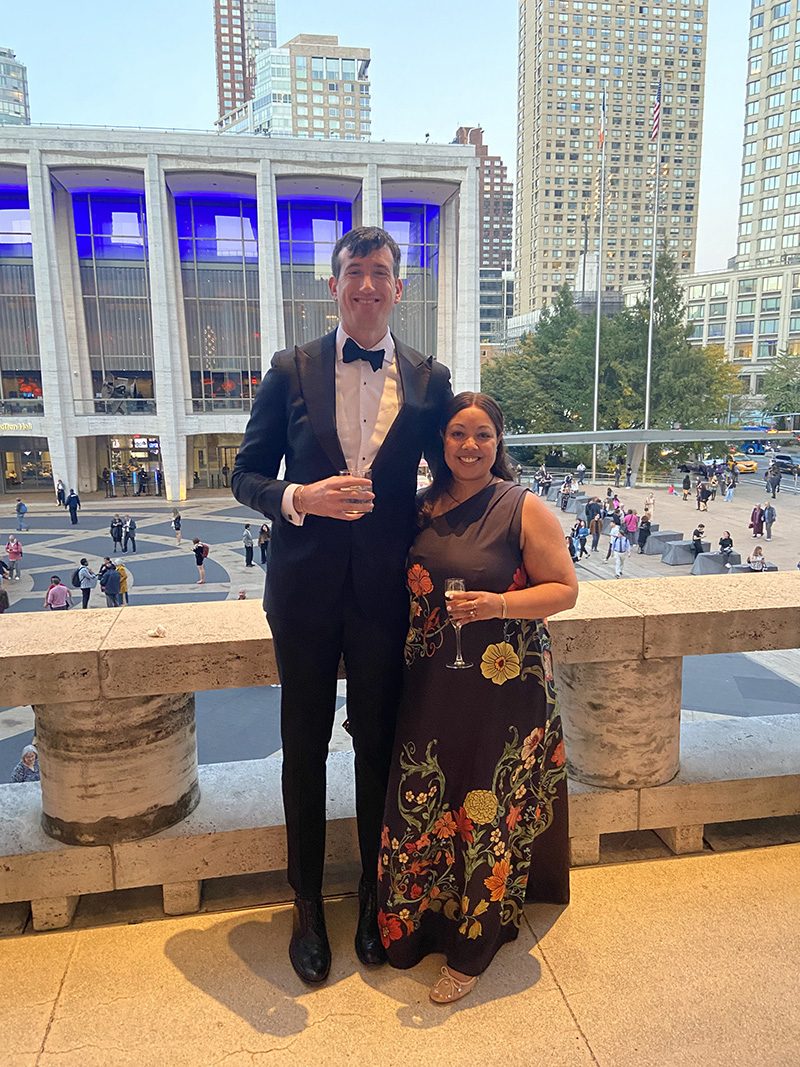
Monisha and Evan discussed how they could help and where a gift could do the most good. Evan went to a big school to get his undergraduate degree. They didn’t think a gift there would make a dent, but a gift to Catawba would. “Catawba seemed the best place to make a difference,” Monisha says.
The Monisha Smith ’04 and Evan Henley Endowed Scholarship will help a student not only with tuition but also with buying textbooks or other necessary items for academic study, such as a computer. Preference will be given to students majoring in political science or English.
Monisha encourages students to take advantage of everything they are even slightly interested in while at Catawba, to seek out internships, to get help from career services, and to have the chance to study abroad. She took advantage of every opportunity except for a couple of things Dr. Silverburg didn’t think would be helpful for her, one of which was to go on a class trip to New York City. “I should’ve ignored him,” she laughs.
But it all worked out. Eventually, Monisha made it to Manhattan, and not just to visit. She moved there in 2018 and loves it!
